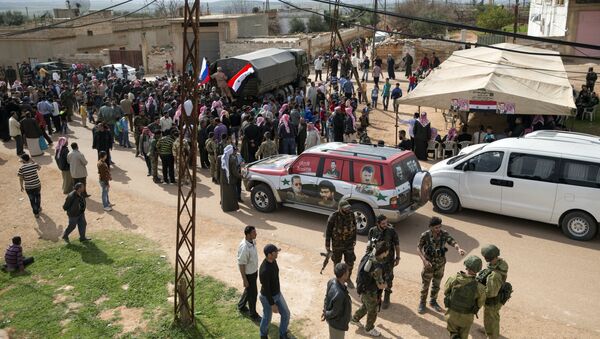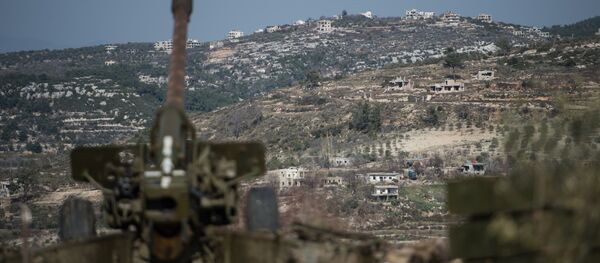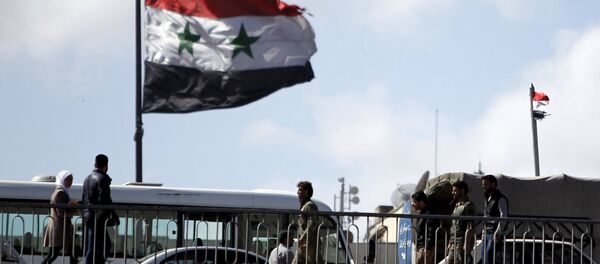Diplomatic efforts in Astana, Kazakhstan, between Russian, Turkish and Iranian delegations have resulted in an agreement to enact safe zones in Syria in what observers hope will be a big step toward peace in the war-torn country. Moscow, Ankara and Tehran emerged as the guarantors of the strategy and authorized the memo creating the safe zones.
The zones are located in the Idlib province, an area north of the city of Homs, in eastern Ghouta, and in southern Syria, and while they have taken effect, it will be about a month before all details of their establishment are finalized, Russian officials have said.
The zones are intended to provide refuge for displaced persons and help in the distribution of humanitarian aid. Syrian government and opposition forces are barred from engaging with each other in the de-escalation zones, a rule to be enforced with checkpoints and security buffers, Sputnik has previously reported.
"The work of combat aircraft in zones of de-escalation, especially of the international coalition planes, is not expected at all, with or without notification," said Alexander Lavrentyev, Russia’s Special Presidential Representative for Syria.
The decision to usher in safe zones was "supported by all principal players," according to Russian Deputy Defense Minister Alexander Fomin, among them the United Nations, the US administration, Saudi Arabia and other nations. This led him to conclude "there is a certain degree of guarantee that the memorandum will be implemented."
Iranian, Israeli, Turkish, Syrian and Russian defense ministries and intelligence services cooperated during "working sessions" to bring about a de-escalation of violence, Fomin said.
"The position of the United States, which welcomed the steps towards reducing the level of violence in Syria, improving the humanitarian situation and creating the environment for resolving the conflict," Fomin said, "has played a positive role."
Nevertheless, political analyst Evgeny Kutikov wrote in a recent report that the new policy shouldn’t be regarded as a "concession to Washington."
One hope is that safe zones will free up more resources for Damascus to fight Daesh, says Sergey Rudskoy, head of Main Operations of the Russian General Staff. "Within the borders of de-escalation zones, military actions between the warring sides stop, including the use of any weapons," and of course, "including airstrikes," Lavrentyev noted.
On Thursday, the US State Department announced that it “appreciates” the efforts of Turkey and Russia for brokering the deal.
According to the Russian Foreign Ministry, a phone call between Foreign Minister Sergey Lavrov and US Secretary of State Rex Tillerson provided a platform for both sides to discuss the situation in Syria and the prospect of establishing peace.
"The sides discussed the de-escalation for the situation in that country, stabilizing the ceasefire regime, increasing anti-terrorism efforts, and intensifying external assistance to the inter-Syrian negotiation process," the ministry said May 5.





